- Learning time
- 20 minutes
- First play time
- 90 minutes
Irish Gauge
Designed by: Amabel Holland
Irish Gauge is a railway game of simple rules but weighty decisions.
Players are industrialists overseeing the construction of several railway lines across Ireland in the 19th century. the board shows Ireland itself, broken into hexes and with some hexes representing cities (these each have a cube in of pink, black or white – more on these shortly), towns, or difficult-to-build-in areas. There are black railway companies (yellow, blue, red, orange, purple) in which players can take shares – in fact, at the start of the game one share from each company is auctioned off. You begin with only £20 to your name, so spend wisely!
But spend you must, because only by investing can you be competitive. On your turn, you take one of four possible actions. You can auction off a share. There’s no guarantee you’ll win it – and depending on circumstance you may not even want to! – but only if you own shares in a company can you do the next action, which is lay track. Track-laying is represented by adding trains of that company’s colour onto the map. You get three ‘build points’ to spend, and where you build on the map has a cost: empty hex, 1 build point. Occupied hex, 1.5 build points. Difficult terrain: 2 build points. And so on.
The point of all this auctioning and track-laying is, of course, to make money. And a third optional action is to call for dividends. Here you dive your hand into a bag and pull out three of the pink white and black city cubes mentioned earlier. Now every company that has track connected to those cities with a matching coloured cube in score points: 4 points for the cities and 2 points for any connected town. Your fourth and final action is to try and make these dividends more rewarding by turning a town into a city by adding a cube – when taking this action, you can look in the bag and choose the colour.
What manifests from these four actions is a highly interactive game where every player is invested – emotionally, if not otherwise – in every turn, and alliances are formed (often unhappily!) when players hold shares in the same companies. As soon as the last cube is drawn from the bag, the final dividends are taken and the game is over. The richest player wins!
Joe says
Irish Gauge made me think of a stripped down version of Chicago Express, which in itself is a stripped down version of the whole 18XX genre of games. The 18XX games focus on the cut-throat machinations of 19th Century railroad tycoons - buying and selling stocks, building up a rail line's potential and then running it into the ground, leaving other players high and dry. I've never played an 18XX game, but did play Chicago Express a few times. That is a game where every choice counts, and the maths of each moment really dictates the best decision. The same is probably true here - I've only played Irish Gauge once so it's hard to say for sure. But that combination makes for quite a dry experience. It feels like the kind of game you could really enjoy if your group invested the plays in, but a bit lacking in 'fun' for me.
The guru's verdict
-
Take That!
Take That!
Plenty. PLENTY! There's no stealing and not a blaster in sight. But from that plain-looking board arises all manner of dastardly politicking.
-
Fidget Factor!
Fidget Factor!
Low to moderate. The actions are simple, but the decisions are less so because everything has ramifications.
-
Brain Burn!
Brain Burn!
See above. The worst situation to be in is cash-poor when an auction starts. But Irish Gauge thrives on worse-situations.
-
Again Again!
Again Again!
Well, you have to like the flavour here. For all the bucolic theme and pretty appearance, Irish Gauge is actually a fairly feisty affair. It's probably at it's best after 2 or 3 plays when everyone is familiar with the nuances of play.

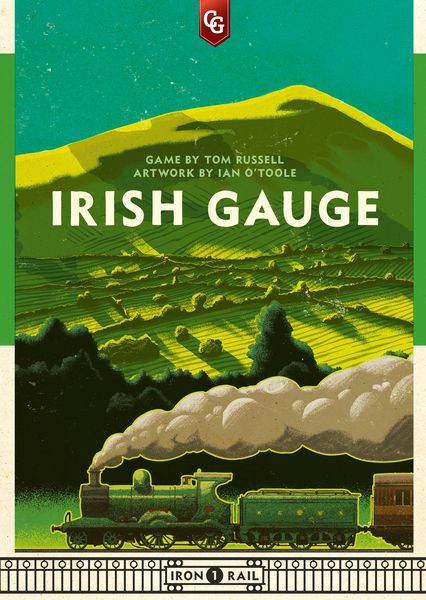
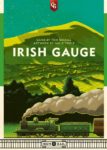

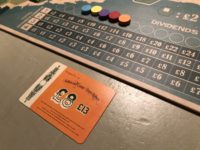




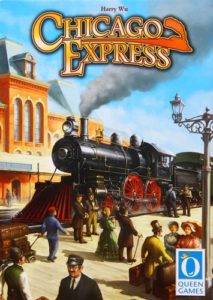
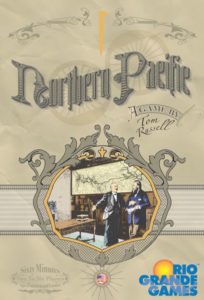

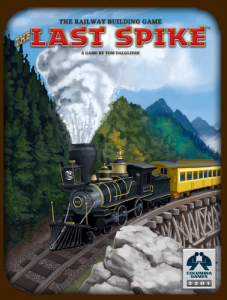
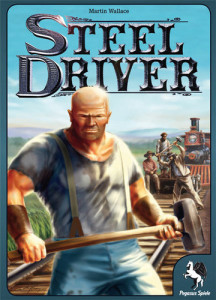
Sam says
For the right crowd there's much to love about Irish Gauge - it's rather delightfully presented (if you don't mind the titchy trains), the rules are simple and there's a lot of chewy decision-making. Despite those being boxes I look to tick, however, we found the game to be somewhat inscrutable. Maybe because we liked the same designer's Northern Pacific so much, which is another train game with simple rules and hard choices. By comparison Irish Gauge felt a little convoluted, not least because the dividends - which happen several times over the course of the game - involve checking and rechecking the status of each company and which cities they're connected to. A minor gripe in the big picture - and perhaps unfair on Irish Gauge to judge it with a direct comparison - but one that made the game slightly grindy, when there's enough to think about already. All that said, I did enjoy the game and would be happy to play.